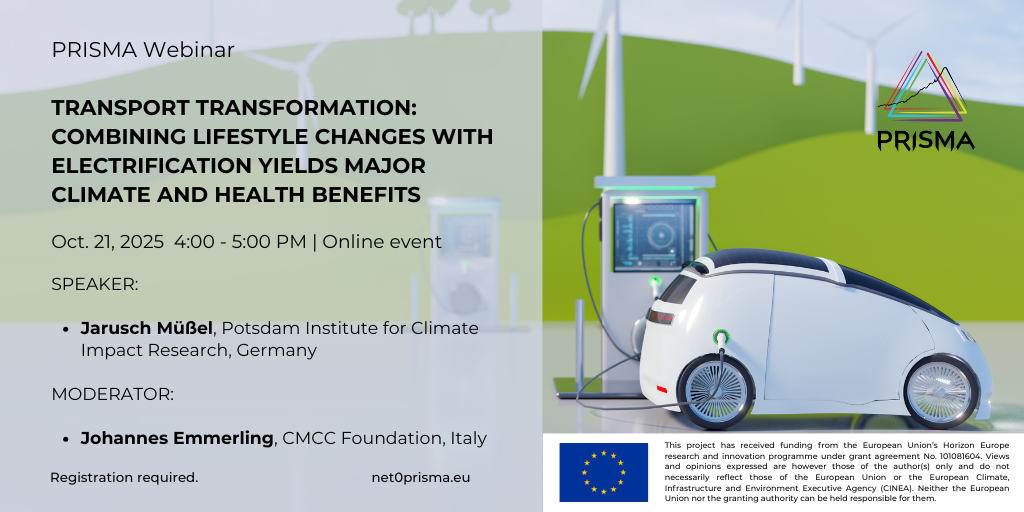Oct. 21, 2025, 4:00 – 5:00 pm (Online event)

Title:
Transport Transformation: Combining Lifestyle Changes with Electrification Yields Major Climate and Health Benefits
Speaker:
- Jarusch Müßel , Potsdam Institute for Climate Impact Research (PIK), Germany
Moderator:
- Johannes Emmerling, CMCC Foundation – Euro-Mediterranean Center on Climate Change, Italy
Abstract:
While electrification is essential for long-term climate goals, it alone cannot unlock the full potential of a sustainable transport future. This webinar presents findings from a new study led by researchers at the Potsdam Institute for Climate Impact Research (PIK), which compares three key decarbonization strategies—lifestyle change, electrification, and efficiency improvements—using the integrated REMIND-EdgeTransport model.
The study shows that while electrification delivers the largest CO₂ reductions by 2050, lifestyle changes such as shifting to shared, active, and public transport modes offer significant near-term climate benefits and major societal co-benefits. These include improved public health, reduced congestion, fewer accidents, and cleaner air—amounting to potential net benefits of €70 billion annually in the EU by 2050.
Join us to explore how combining electrification with behavioral shifts can create a more livable, healthy, and climate-resilient future, and why integrated policy approaches are critical to achieving this vision.
The webinar will conclude with a 15-minute question and answer (Q&A) session.
- J. Muessel, R. Pietzcker, J. Hoppe, P. Verpoort, D. Klein, G. Luderer (2025). An integrated modeling perspective on climate change mitigation and co-benefits in the transport sector. Environ. Res. Lett., 20, 094011. https://iopscience.iop.org/article/10.1088/1748-9326/adf23
Registration required: https://cmcc-it.zoom.us/webinar/register/WN_Ddh-jXbVSSSSGUMwxyhLTg
This project has received funding from the European Union’s Horizon Europe research and innovation programme under grant agreement No. 101081604 – PRISMA. Views and opinions expressed are however those of the author(s) only and do not necessarily reflect those of the European Union or the European Climate, Infrastructure and Environment Executive Agency (CINEA). Neither the European Union nor the granting authority can be held responsible for them.
